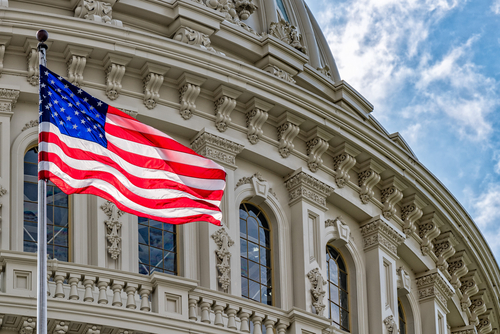The U.S. House of Representatives recently passed four bills that seek to improve various Small Business Administration (SBA) programs.

“Small businesses are the beating heart of the American economy. Given that fact, it’s vital that Congress support entrepreneurs and work to alleviate the challenges they face,” Rep. Nydia Velázquez (D-NY), chair of the House Small Business Committee, said. “These bipartisan bills will strengthen critical SBA programs and help ensure small businesses are protected from cyber threats, able to export their products abroad and better equipped to recover from natural disasters.”
The bills passed included the Senate amendment to the SBA Cyber Awareness Act (HR 3462), introduced by U.S. Reps. Jason Crow (D-CO) and Young Kim (R-CA). This bill directs SBA to issue reports that assess its cybersecurity infrastructure and report cyber threats, breaches, and cyberattacks.
Another is H.R. 8844, the STEP Improvement Act of 2022, introduced by Reps. Dwight Evans (D-PA) and Young Kim (R-CA). This legislation would reauthorize STEP – the Student Temporary Employment Program — for four fiscal years through FY 2026). The bill would improve the program by creating a standardized application process, increasing spending flexibility for grant recipients, improving communication between SBA and states, and collecting performance metrics and reporting to Congress. Also, businesses less than one-year-old would be allowed to participate in the program.
The third bill is the House Amendment to S. 1687, the Small Business Cyber Training Act of 2022, sponsored by Sens. Marco Rubio (R-FL) and Jeanne Shaheen (D-NH). This bill would establish a cyber counseling certification program in Small Business Development Centers (SBDCs) to provide specific and free cyber training for small businesses. The cyber training provided by the nationwide network of SBDCs will offer resources for small businesses to plan and implement cybersecurity protections.
Finally, the House passed S. 1617, the Disaster Assistance for Rural Communities Act, introduced by U.S. Sens. Jim Risch (R-ID), Jeanne Shaheen (D-NH), Margaret Hassan (D-NH), John Kennedy (R-LA), and Mike Braun (R-IN). This bill will close a loophole in the SBA’s disaster lending program, which disproportionately impacts homeowners and businesses located in remote rural areas. Currently, when the president declares a disaster under the Stafford Act but does not authorize individual assistance, the SBA must declare a disaster for an individual to apply for a loan. However, for SBA to declare a disaster, a minimum amount of physical damage must be sustained in a county or smaller political subdivision. This bill allows SBA to declare a disaster in any rural area in which a major disaster has been declared by the president, but individual assistance hasn’t been authorized under the Stafford Act.